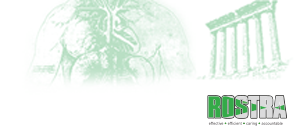Laserveins.org is a national network of surgeons, working with the specialist company Rostra Healthcare Group, founded to provide the best advice and treatment for all aspects of varicose vein problems.
FAQs
Am I at risk from the laser?
No, however during laser treatment of varicose vein you will be given a pair of special glasses to wear to protect your eyes, this is just a precaution against accidental firing of laser energy outside the body.
Are there any complications following these treatments?
All medical procedures carry risks and as part of the consent process the Vascular Specialist will discuss any potential complications of your varicose vein treatments and will also answer any questions you may have.
The modern minimally invasive treatments appear to have lower complication rates than traditional surgery and complications also appear to be less severe following these treatments.
The recovery period following modern varicose vein therapy appears to be shorter than traditional surgery, with most patients being able to return to normal activities within a day or two.
What happens to the vein after it has been treated?
Over a period of a few weeks the body will absorb the treated vein making it disappear naturally.
If I have a local anaesthetic how painful will the procedure be?
Under local anaesthetic you will need to have a few injections during the operation. We use a very tiny needle but it is still a little bit uncomfortable – it is a bit like going to the dentist.
How successful are these treatments?
Surgery – when performed by a vascular specialist, traditional surgical procedures can give extremely favourable results. The overall success rate for the procedure is probably around 80%, with 20% of patients developing recurrent varicose veins in the years subsequent to the operation.
Minimally Invasive Treatments – early results with endovenous laser therapy (EVLA & EVLT™) and radiofrequency ablation (VNUS™) have been extremely favourable with success rates generally higher than the conventional surgical approach, which is accepted as the ‘gold standard’ treatment. These minimally invasive treatments will normally treat the cause of most varicose veins but additional/complimentary therapy may be necessary in some cases.
Over the first 8-10 years of these procedures, the success rate is in excess of 90%, with less than 10% of patients developing recurrent varicose veins
Newer endovenous techniques such as mechano-chemical ablation (Clarivein®) and cyanoacrylate occlusion (Venaseal®) are not yet as established as either endovenous laser ablation or radio frequency ablation but appear to show similarly successful outcomes when used appropriately. These newer techniques do not suit all presentations and your varicose vein expert will discuss your ultrasound findings with you to identify the most appropriate treatment.
Sclerotherapy – both injection and ultrasound guided foam sclerotherapy appear to have high recurrence rates frequently requiring re-treatment, especially when used as a first line treatment, however it is excellent for cosmetic treatment of any visible veins remaining after thermal ablation using either laser or radio frequency.
What should I do if there is a problem after the operation?
There will always be a member of the laserveins.org or Rostra Healthcare Ltd clinical team available to speak to after your treatment. Following your procedure at any of the laserveins.org clinics you will be given an advice sheet with a 24 hour emergency telephone helpline.
You can also contact Rostra Healthcare Ltd at:
BBIC
Innovation Way
Wilthorpe
Barnsley S75 1JL
If you need urgent medical attention, you should go to your nearest A&E Department.


